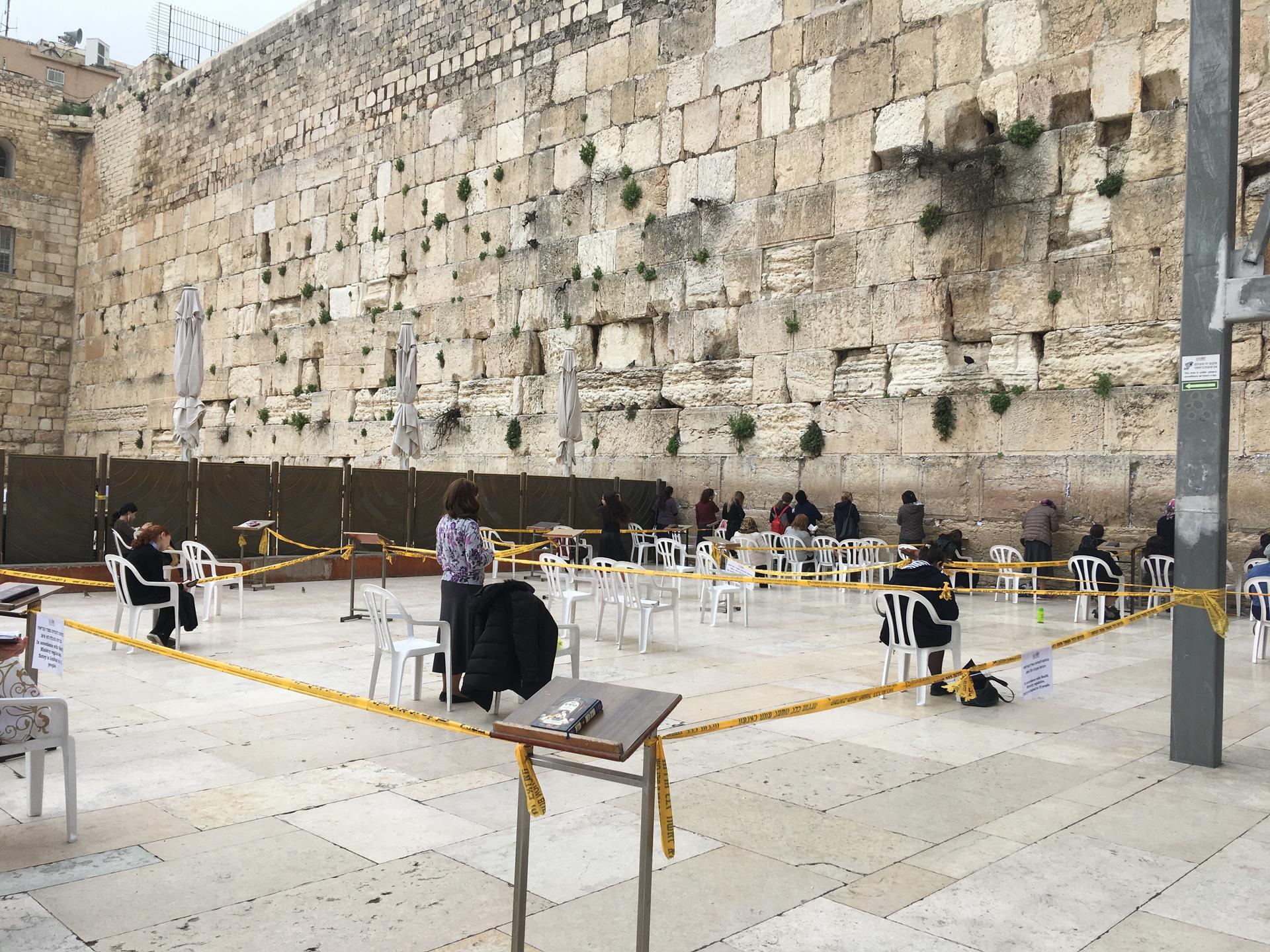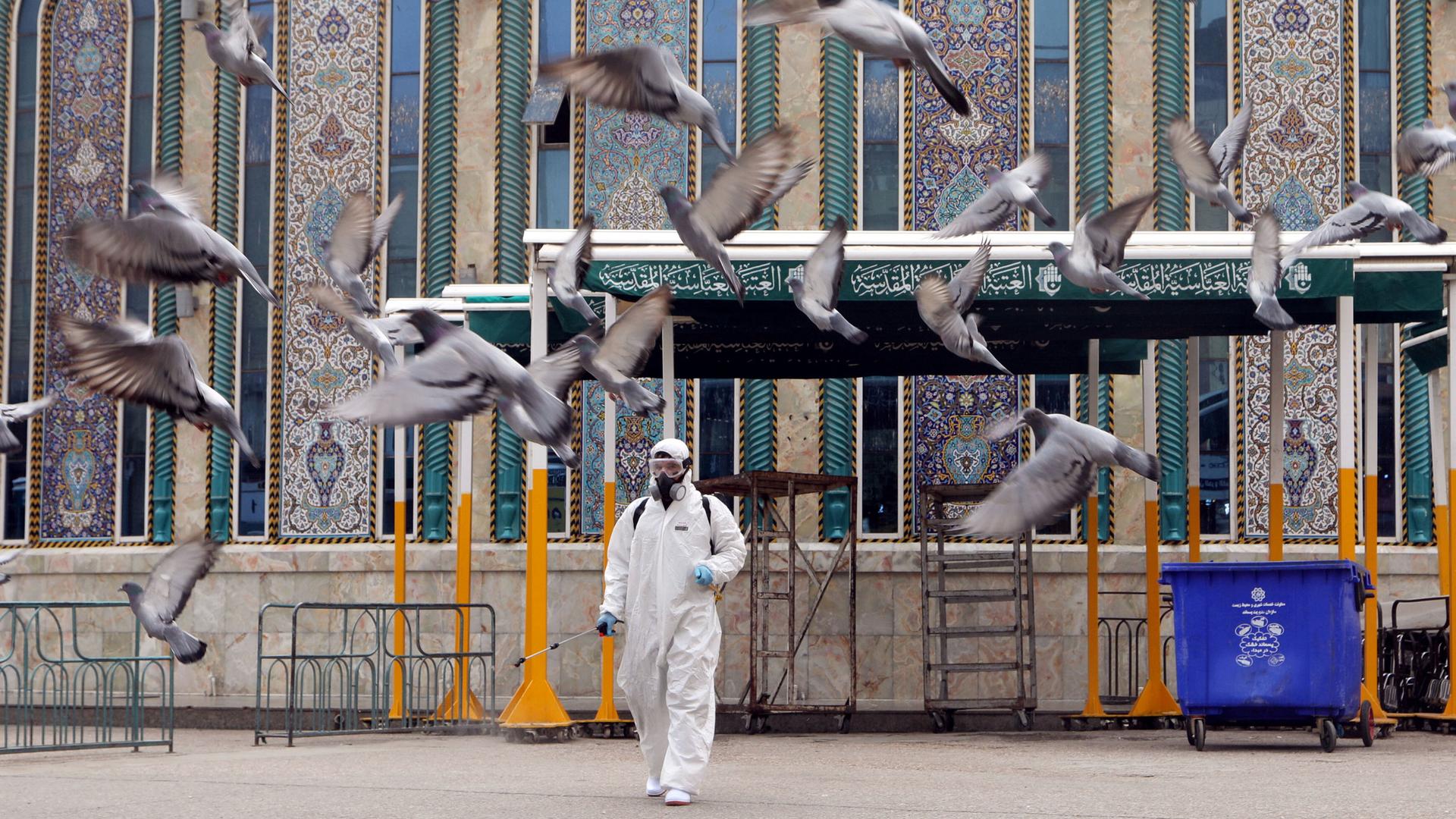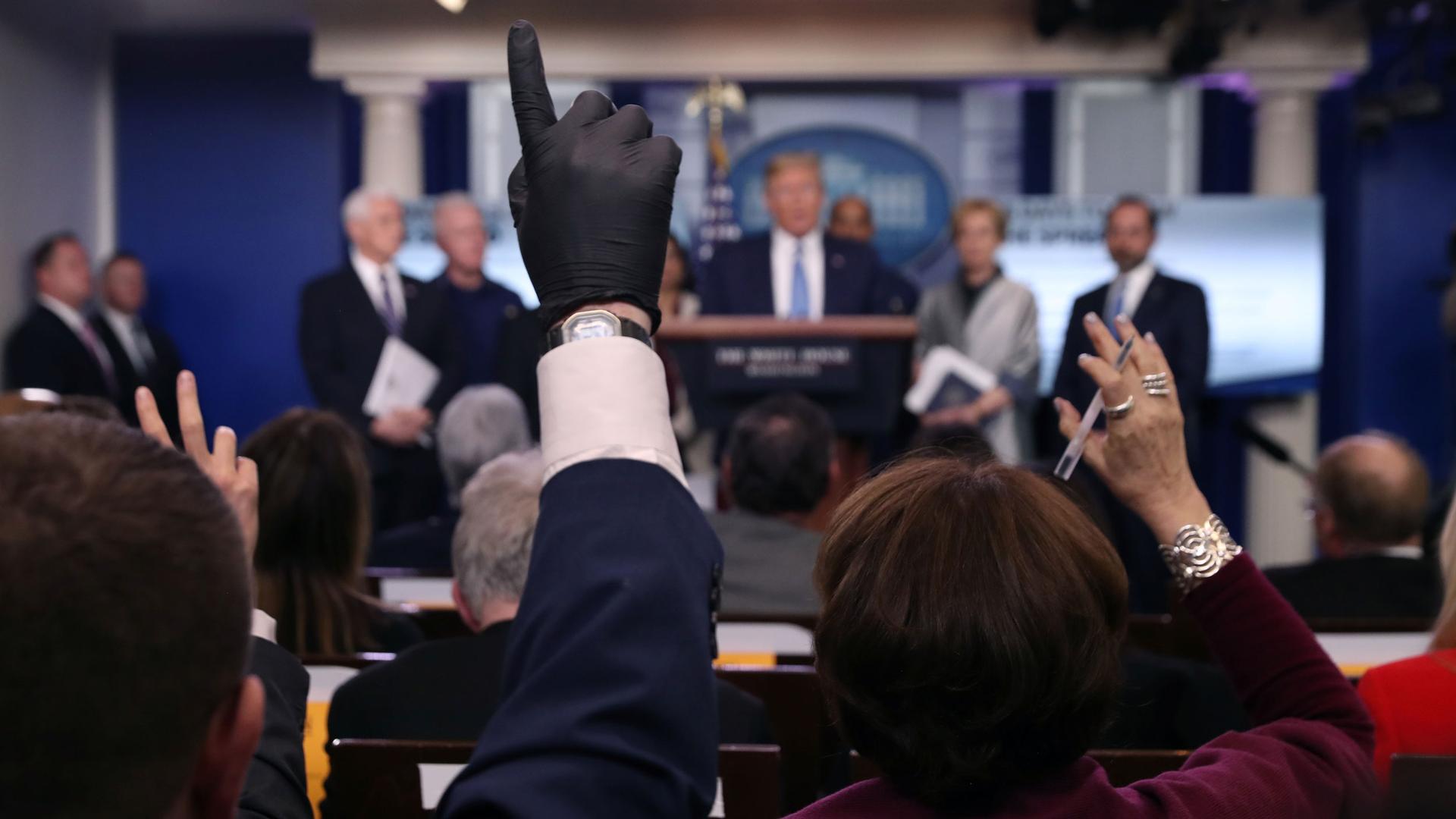Trump appears to recognize magnitude of virus; Economic disarray, as coronavirus prompts bailouts; Nine years on, we still dream of a free Syria
A reporter wears a latex glove while trying to ask a question of US President Donald Trump during a news briefing on the coronavirus at the White House in Washington, DC, March 16, 2020.
Top of The World — our morning news round up written by editors at The World. Subscribe here.
After months of downplaying the severity of the crisis and offering contradictory guidance, US President Donald Trump appeared to more fully recognize the magnitude of the impact of the novel coronavirus in a Monday press conference. In the meantime, states have been improvising their own rules.
New federal recommendations call on Americans to significantly draw down their activities, following a a dire report that warns 2.2 million people in the US could die without action by the government and individuals. In California, Bay Area residents have been told to shelter in place.
“In a way, this crisis could ultimately have an impact as serious as a world war in terms of the number of people affected, in terms of the impact on the economy and on people’s way of life,” former US Ambassador to NATO Nicholas Burns told The World. “We need better leadership in many capitals of the world.”
And: On Fox News, suddenly a very different tune about the coronavirus
More: Australian scientists map how immune system fights virus
Economic disarray, as coronavirus prompts bailouts
The pandemic has brought the world’s economy to a virtual standstill. Global supply chains are in disarray and industries like aviation are at huge risk.
Demark has offered and extensive government aid package to private companies, offering to pay 75% of employee salaries. In the US, the Trump administration seeks an $850 billion stimulus, focused on tax cuts. Republican Sen. Mitt Romney has taken up the mantel of former Democratic presidential candidate Andrew Yang, calling for a payout of $1,000 for every American adult.
“No modern economy has experienced anything quite like this,” writes Neil Irwin for The New York Times. “We simply don’t know how the economic machine will respond to the damage that is starting to occur, nor how hard or easy it will be to turn it back on again.”
And: A grocery store clerk explains what it’s like on the front lines of coronavirus panic
Also: Amazon said that during the pandemic, sales are soaring. Workers say they feel unsafe.
Elections in the time of coronavirus
Significant early voting in Arizona and Florida might limit the impact the coronavirus pandemic has on turnout in today’s Democratic primaries. The primary vote was postponed in Ohio. But Illinois, where early voting is below average, could see a hit. France’s Sunday elections had an historically low turnout, and second-round voting will be postponed.
The primaries are one thing, but what impact could the virus have on the 2020 general election in November?
More: When US polls close on March 17 — and when we might get results
And: Coronavirus and the 2020 US election: A collapsing economy is a disaster for the incumbent
Analysis: Nine years on, we still dream of a free Syria
“Never Again” has become an empty slogan when it comes to Syria, writes one Syrian-American doctor for The World.
“Syrian children are freezing to death while the United Nations issues reports on the ‘horrifying conditions’ in their warm and cozy offices in NYC and Geneva. In the last week, two children I met — Ghufran, 4 months old and Eman, 18 months old — have frozen to death.
After nine years, the world seems fatigued by news of the Syrian war. Still, we have hope.”
And: Life goes on in Greek refugee camp amid diplomatic tensions and pandemic
Also: War-ravaged Afghanistan battles a new threat: coronavirus
In Jerusalem’s Old City, the faithful cope with the coronavirus

Fathi Jabari owns a little souvenir shop along a stone alleyway in Jerusalem’s Old City. A Muslim, he prays at al-Aqsa mosque, one of the holiest places in Islam, four to five times per day. But Sunday, the Islamic religious authorities who administer the site closed it to ward against the spreading of the coronavirus. Instead, people worshipped outside.
Now, Jabari is wondering if this measure is enough as people still prayed shoulder to shoulder. Sitting outside his shop, he debated with a friend: Should they practice social distancing in prayer?
“With the coronavirus, we must be separate,” he said. “It is better.”
Morning meme
St. Patty’s Day parades have been canceled as social distancing is critical to slow the coronavirus spread. But you can still enjoy some Celtic toe-tappers with the Dropkick Murphys’ livestream concert.
In case you missed it
Listen: World leaders scramble to slow the spread of coronavirus

The international community has been scrambling to confront the global threat of the coronavirus pandemic. So far, multilateral diplomacy hasn’t been used to effectively beat back spread of the outbreak. And across much of Asia, it’s incredibly hard to find a hospital-grade face mask — so the black market has stepped in. Also, coronavirus-related toilet paper shortages have raised an awkward truth: Americans are outliers globally when it comes to toilet paper usage.
Don’t forget to subscribe to The World’s Latest Edition podcast using your favorite podcast player: RadioPublic, Apple Podcasts, Stitcher, Soundcloud, RSS.
